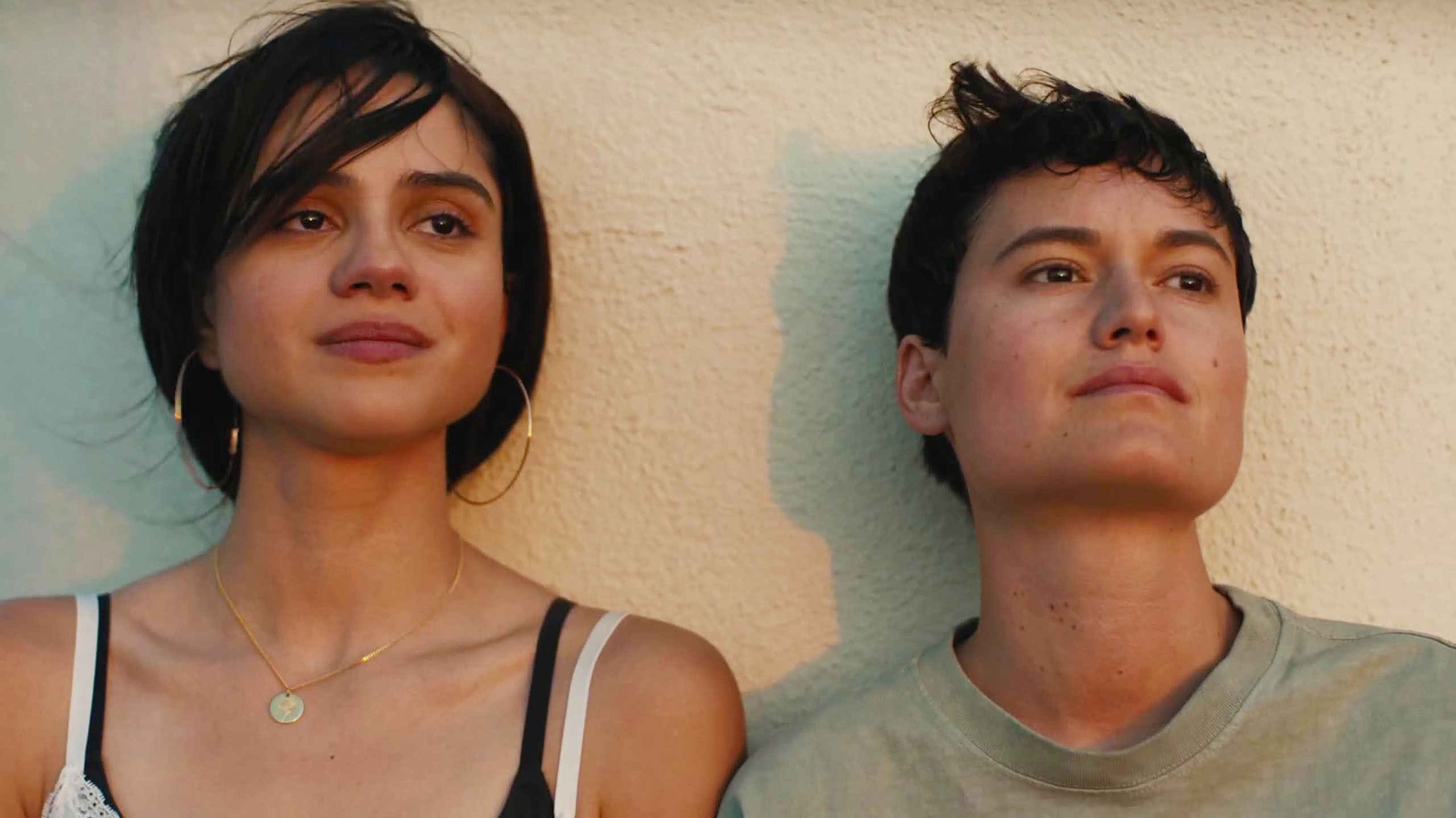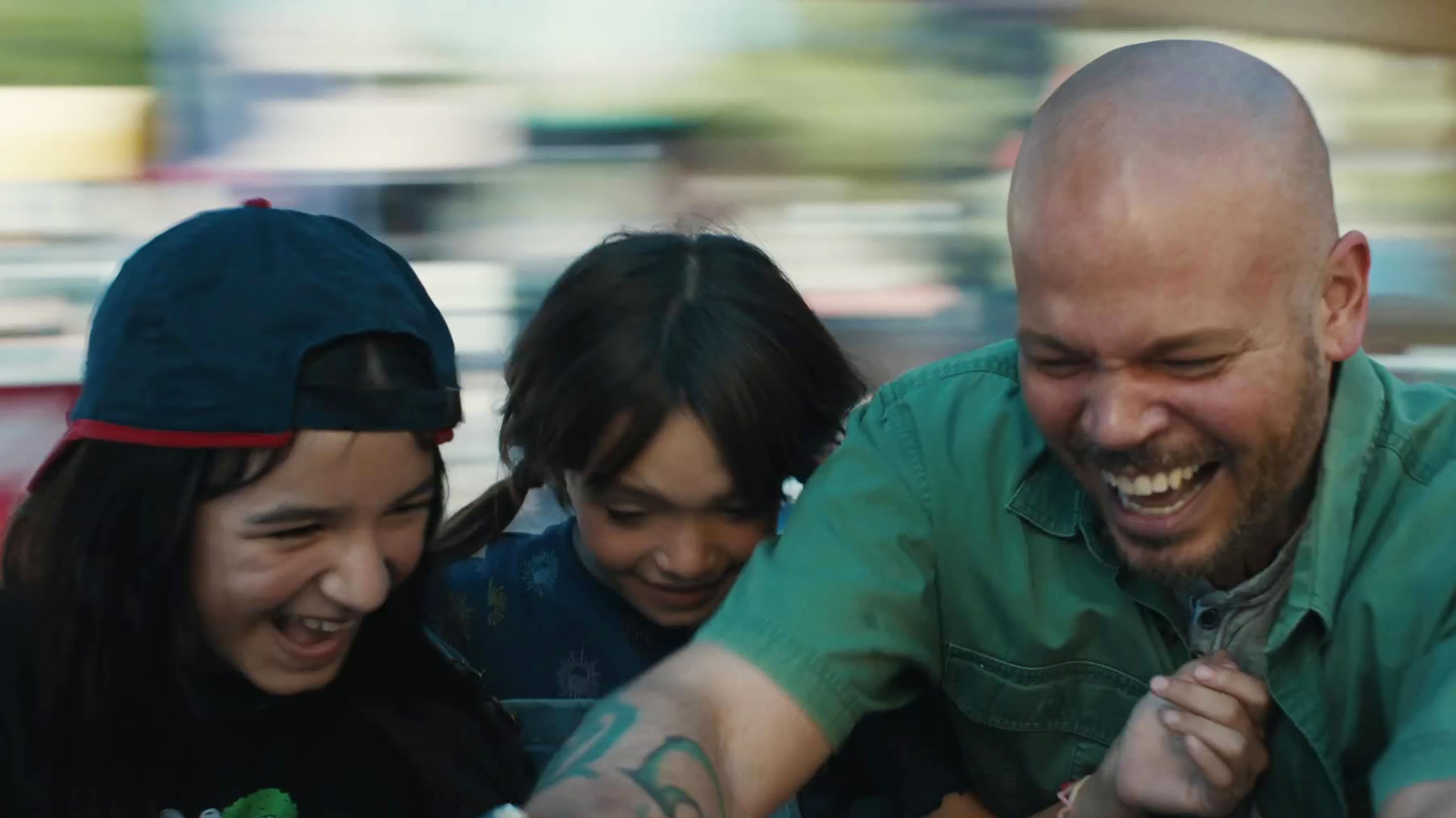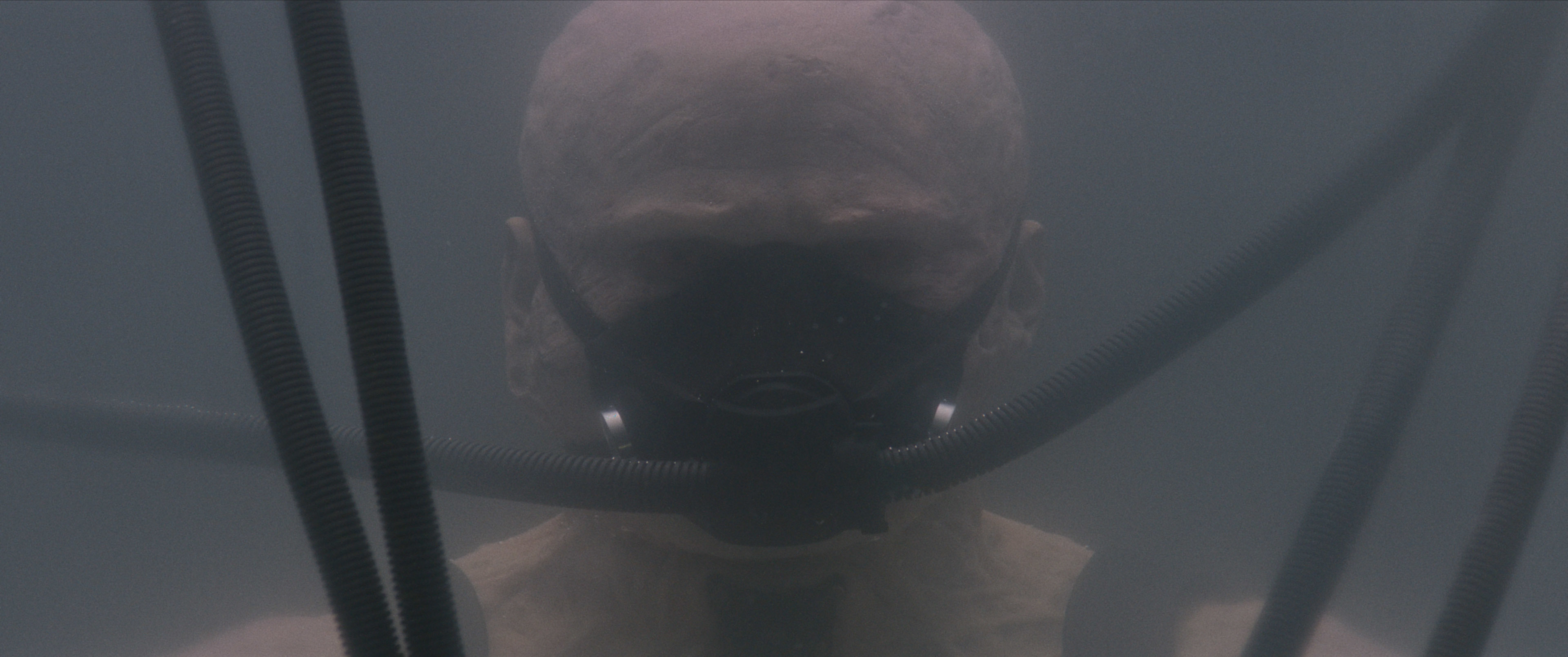‘In the Summers’ Review: Alessandra Lacorazza’s Feature Debut Is a Deep Characterization of a Troubled Household

A still from “In The Summers” by Alessandra Lacorazza, an official selection of the U.S. Dramatic Competition at the 2024 Sundance Film Festival. Courtesy of Sundance Institute.
Alessandra Lacorazza’s feature debut In the Summers, which just won the Grand Jury Prize at the 2024 Sundance Film Festival, is structured in four parts. As hinted at by the title, they are four different summers spaced out a few years within the lives of Eva and Violeta, in which they visit their father in his New Mexico house. Early on in the film, as kids, it’s hard at first for them to realize that there’s some trouble in paradise; they are more focused on enjoying a hot summer by the pool and hanging out with their dad than they are worried about the fact that he’s far from the ideal father figure they deserve. But he’s still their father.
The film is a deep characterization of what happens when two children have the wrong role model to look up to. Both of them turn out just fine in the end, but their internal demons, which grow over the years after their father’s drunk and judgy comments slowly start to sink in, are too hard to ignore. We as an audience realize that this is the case way before they do, from the moment he semi-forces the girls on a rather dizzying ride (only for Eva to start throwing up immediately after, and when a worried lady comes to the rescue, he yells at her) to the car drive in which he put their lives at unnecessary risk.
Lacorazza’s subtle script starts to pepper in small moments like these more and more often during the four-act structure (especially during the first three parts), to the point where it’s impossible for the young kids to not realize their father is not exactly normal. But the biggest win of the writing is how well it’s able to characterize the people in the story, and how it doesn’t paint anyone as pure evil or pure good. These are troubled characters, and we can see their ups and downs. The father, Vicente (Residente), is a drunk who was never brave enough to try to make it outside of his New Mexico town — but it’s not because he lacked the skills to do it; he is described time and time again as very smart and someone who could have grown up to be someone. But something held him back, and though we don’t know what it was exactly, it’s hard to imagine it was anything other than himself.
Eva is played by three different actresses in the film: Luciana Elisa Quinonez as kid Eva, Allison Salinas as teen Eva, and Sasha Calle as adult Eva. The character grows more and more complex with every passing section of the film, as her own experiences in life start to pierce through; and that makes the performances more and more compelling. Salinas, in Part III, has a few beautiful moments in which she truly shines, only for Calle to take it to a whole new level in the final act. Part III also contains a great scene at home with a brief appearance by Leslie Grace that wrecked me.

A still from “In The Summers” by Alessandra Lacorazza, an official selection of the U.S. Dramatic Competition at the 2024 Sundance Film Festival. Courtesy of Sundance Institute.
If you were to ask Vicente, he would describe Eva as the pretty one, but also the not-so-smart one. She longs for his approval throughout the entire film, and though she’s the more supportive of the sisters, she’s also the one who’s dismissed the most. Vicente is more interested in her sister’s brains, as reflected by the fact that he barely acknowledges the art project she made for him in school, or how angry he gets when Eva defeats him at pool after years of practice to try to live up to the level set up by Vicente and Violeta.
Meanwhile, Violeta may have inherited her father’s brain, but as she starts to explore her own sexuality during her teenage years, she becomes a lot more interesting — and too complicated for his father. Though he never acknowledges her own daughter’s layers and even sufferings, she stands up to him as a teenager multiple times while he’s drunk, which leaves him at the center of rather awkward situations. The character is played by Dreya Castillo, Kimaya Thais, and Lio Mehiel; and the same happens to them, with the older actress outperforming the subtleties of their predecessor in the film, just like the character becomes more and more nuanced.
It’s hard not to get wrapped around the tenderness and intimacy of In the Summers, but it still feels like Lacorazza left something on the table. While we know very well the relationship between the father and each of the daughters, the story feels more like it should have been about the bonds the two of them formed over the years as they tried to survive an abusive household during the summers. He teaches them how to smoke and how to drink, and though one of them was able to get over it, the other one didn’t.
There are a few moments throughout the film in which Eva and Violeta get to connect as sisters, but they are sparse and far between. That could have also made for a much more relatable story. Counterpoint, though: as someone who grew up with a sister, I also understand the feeling of not having to talk or even interact much to know exactly how the other person is feeling. It’s certainly one to start conversations, and the biggest highlight for me was how well Lacorazza was able to capture a horrific human experience yet come out of it with a positive message: You carve your own path and are not subject to what came before you or anyone else’s life choices.
In the Summers is currently seeking US distribution after premiering at the Sundance Film Festival.
Miguel Fernández is a Spanish student that has movies as his second passion in life. His favorite movie of all time is The Lord of the Rings, but he is also a huge Star Wars fan. However, fantasy movies are not his only cup of tea, as authors like Scorsese, Fincher, Kubrick or Hitchcock have been an obsession for him since he started to understand the language of filmmaking. He is that guy who will watch a black and white movie, just because it is in black and white.






